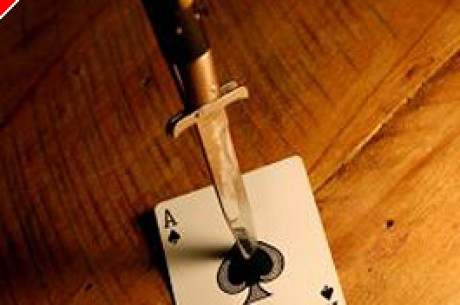The Politics Of Poker Are Effective

When the Unlawful Internet Gaming Enforcement Act passed through the Congress and was signed by President Bush in October, the outrage was palpable from every sector of the poker community. The Poker Players Alliance (and several other smaller organizational efforts) rose to inform American poker players and encourage them to take action against those responsible for driving the legislation through the American government. Now, almost two months from the off-year (read: non-Presidential) election later, what has happened and what have we learned from it?
The impact for those elected officials has been sizeable, to say the least. The main driver behind the UIGEA, Rep. Jim Leach of Iowa, found a great deal of support from his party members for HR 4411 (the legislation that started the online gaming ban on its path) but found that his constituents didn't think of it as much as they did. Election Night 2006 found him voted out of office. Sen. Bill Frist of Tennessee, who sided with Leach and pledged (alongside Leach at an Iowa campaign stop) to push some legislation through office before the close of the current Congress (which he did in a back-alley tack on to legislation that was sure to pass the Senate), went from being one of the Republican front runners for the 2008 Presidential race to, on Thursday, announcing he wasn't considering a run for the Oval Office.
Two other members of Congress that promoted the UIGEA, Rep. Bob Goodlatte of Virginia and Sen. Jon Kyl of Arizona, were re-elected. Goodlatte ran virtually unopposed in his Virginia district and was a lock to return to the House, but Kyl won in Arizona by a much smaller margin. While they can sit back on their victories, both Goodlatte and Kyl will not, however, find the same backing for their anti-gaming measures that they had prior to Election Night 2006.
So what effect did poker players have on the November defeats that were handed out to various members of Congress? To be realistic, there were much more serious issues on the minds of the American people (such as the situation in Iraq, several political and personal indiscretions of our representation, etc.), but the question of poker must surely have had some impact when it came to the election. Especially in former Rep. Leach's case (and potentially in Sen. Frist's decisions), the anger of poker players was heard in the banishment of Leach from the halls of Washington. By making their voices heard at the most special place in American democracy, the voting booth, the power of a burgeoning political caucus could be demonstrated that could affect issues in the future.
Kudos have to be handed out to the Poker Players Alliance, its president Michael Bolcerek and the staff of the organization. The PPA did something that is very difficult in the American political process and that was motivating action from its membership. They were able to educate the electorate as to the actions of Congress, identified those who were at the point of the online gaming ban, and encouraged their members and other organizations to express their opinions with their vote. The PPA has done exactly what a political action committee (PAC) would do when faced with challenges in Washington and, as membership increases and more players come to express their opinions, could be reaching that goal of what Michael Bolcerek once told me he wanted the PPA to become…"a voice for poker players to take action in Washington, like AARP or the NRA."
With a much more moderate Congress being seated in Washington come January, there is already talk of studying the issues of online gaming and poker and perhaps the realization that regulating and taxing the industry is the best way to go. The issue of online poker may not have been the driving force behind the upheaval in Congress, but it was something that many had on their minds when they went to cast their vote. As the next few years play out, I would expect that the politics of poker will continue to have an effect on the fortunes of many a politician and many actions that Congress will look at before the 2008 presidential elections.








